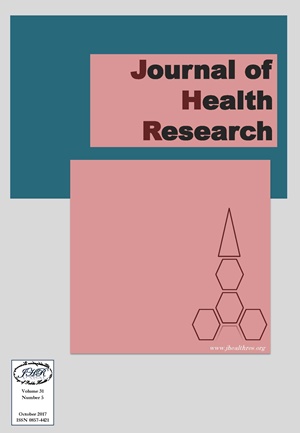Knowledge, Use and Associated Factors Relating to Modern Contraceptive Methods among Female Sex Workers in Dhaka, Bangladesh
Keywords:
Knowledge and use, modern contraceptives, female sex workers, DhakaAbstract
Background: Female sex workers (FSWs) are an isolated population of the world who have unmet needs of contraceptive services. This study assessed knowledge on and use of modern contraceptive methods among FSWs.
Methods: A survey (n=731) and 14 qualitative in-depth interviews with 15-49 year old FSWs were implemented in 2015 in Dhaka, Bangladesh. Descriptive statistics and multivariate logistic regression analyses were applied to assess knowledge on use of contraceptives including associated factors. Qualitative data was managed using content analysis where in-depth perceptions regarding contraceptive methods were illustrated.
Results: About 73% of FSWs had good knowledge of names and physical sources of contraceptives. The qualitative data added various concerns about contraceptives which included having problems of irregular menstruation, vertigo, becoming weak or fat, displacement of the intra-uterine contraceptive device in the vagina. According to survey results, the majority of FSWs used condoms (71%) but use of oral contraceptive pills (20.9%), Injectable (16.2%), Intra Uterine Device (IUD) (1.5%), implant (4.7%) and female sterilization (4.5%) was very poor. Dual protection (condom plus any other method) was only reported in 22% of the women studied. Being divorced/separated/widowed/husband lived out of country [OR with 95% CI: 2.34 (1.2-4.5)] and performing sec acts in multiple settings [OR with 95% CI: 3.95 (1.7-9.4)] were significantly associated with use of any modern methods of contraception.
Conclusions: The use rate of contraception except condom is evidence of poor accessibility of services. We recommend integrating or making linkage to contraceptive services with existing HIV prevention services targeting FSWs in Bangladesh.






